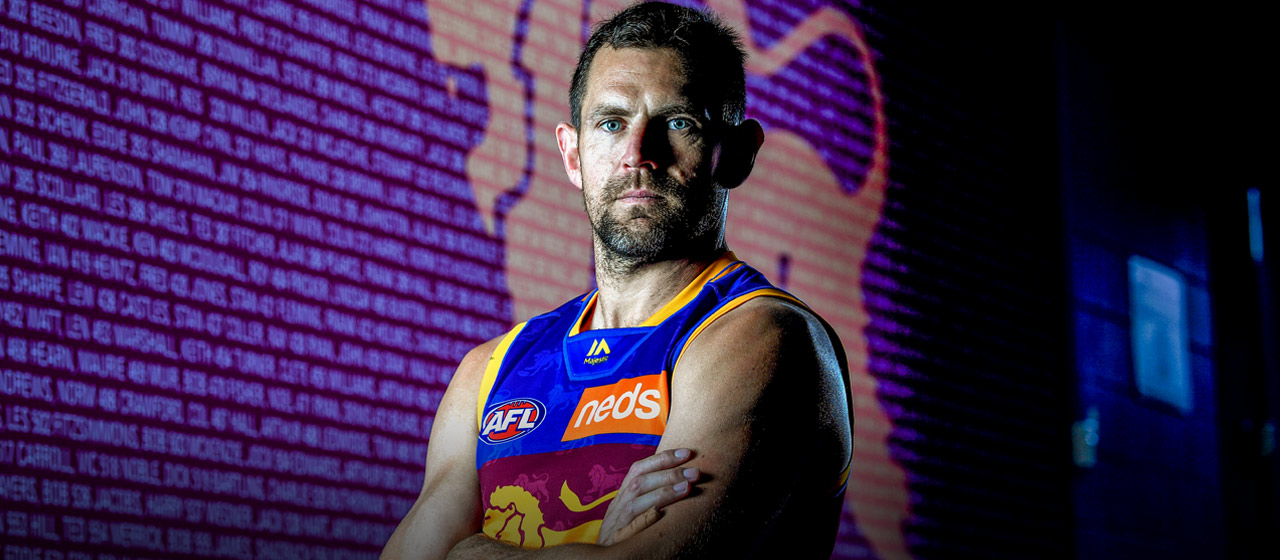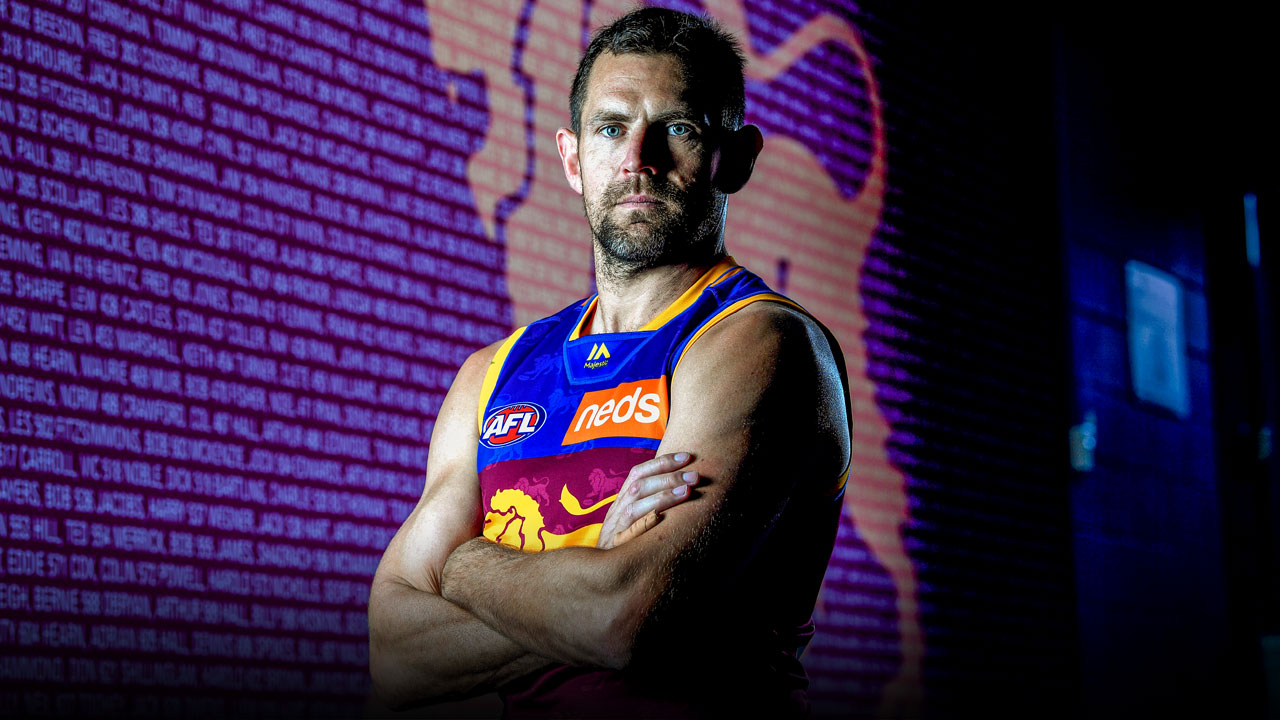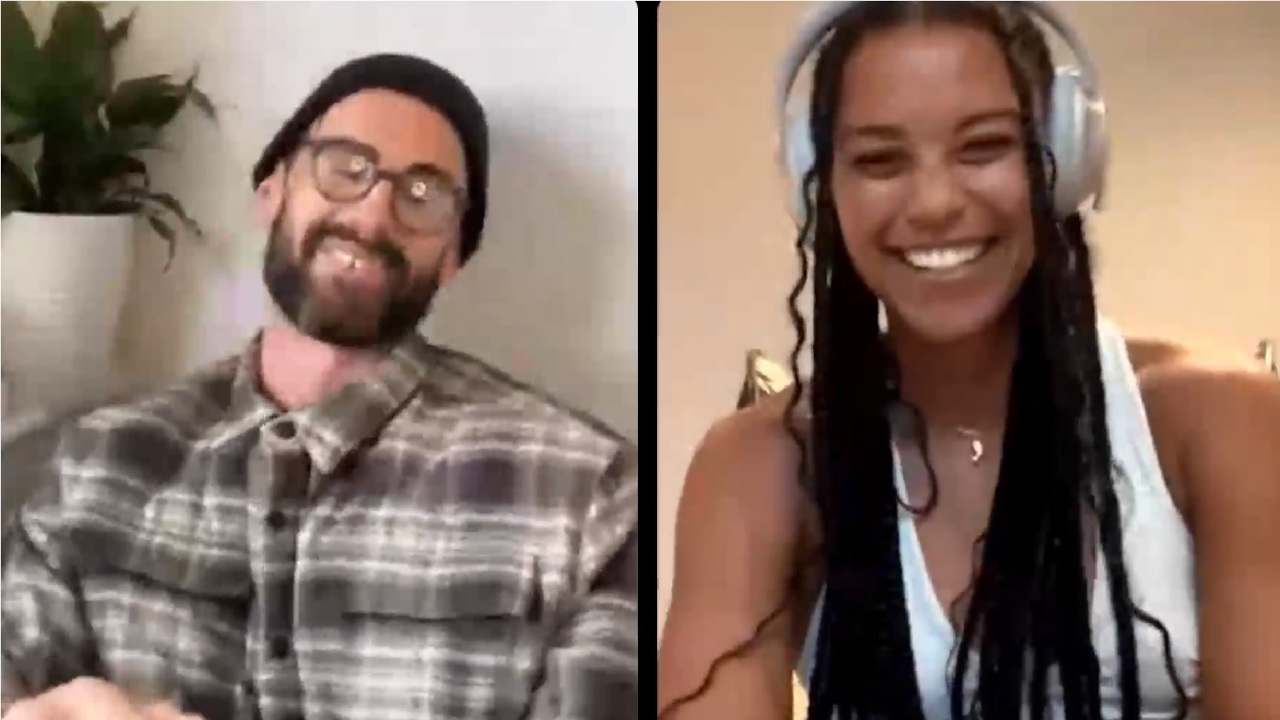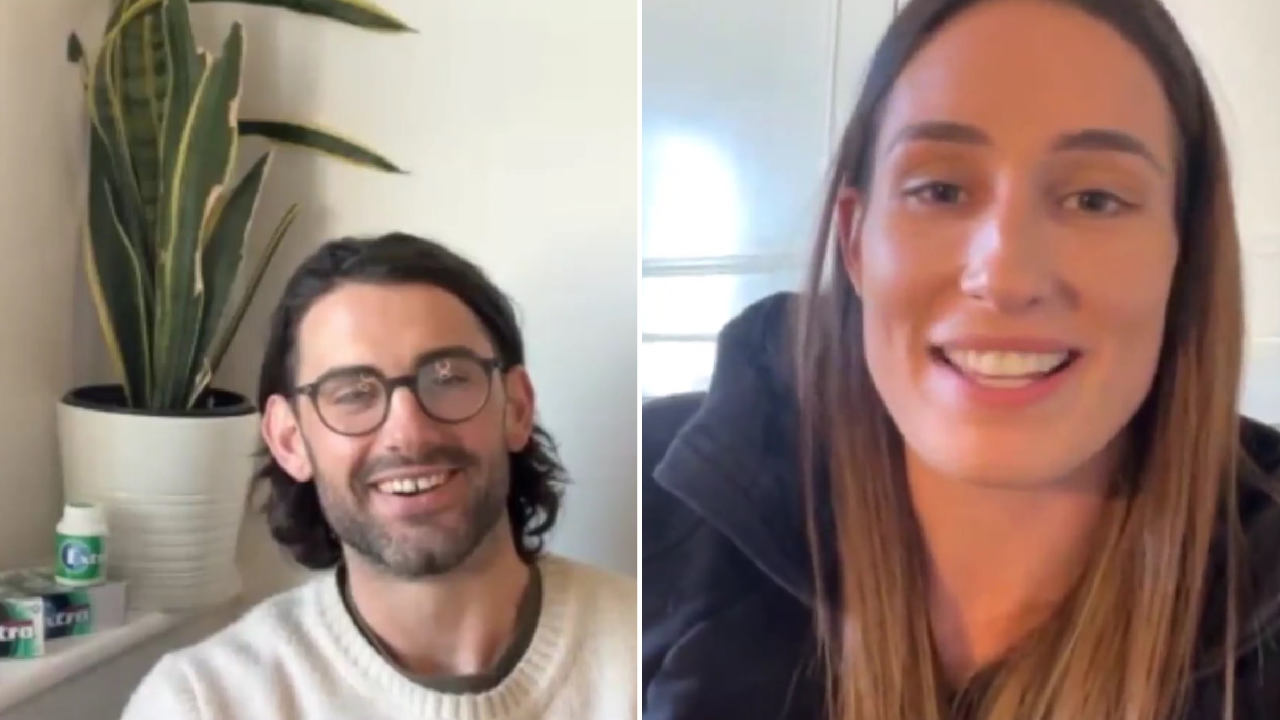AFL
The weight of a number
I sat down with Cam Rayner for a coffee the other day, to catch up after the Lions’ off-season break. We ended up having a really interesting chat about our different experiences as number one draft picks, 16 years apart.
Cam was picked up by the Lions in 2017 and, compared to me, he was able to stay pretty calm throughout the whole process.
I was nervous during the lead-up to the 2001 draft because I knew I’d have to move away from Colac, where I’d grown up. Fremantle had the number one selection before they traded it to Hawthorn, and West Coast were number three. I was very aware that following my dreams meant leaving home behind.
Cam wasn’t worried about that at all. His mindset was that if he was going to play AFL footy, he had to be prepared to move wherever. If that meant moving up to Brisbane, so be it. If it meant moving away from his mates, he trusted that they’d understand.
It was a good mindset for him to have, because at the end of the day most footy clubs are quite similar. And these days staying in touch with your family and friends is easy, with FaceTime and social media.
But back when I was getting drafted all I had on my phone was calls, texts and that game Snake that everyone played. It’s a different world now.

Escaping the circus
One thing Cam believes strongly is that coming up to Brisbane, instead of joining a team in an AFL-dominated state, has really benefited his career.
Being drafted by the Lions has allowed him to ease into life as a professional footballer and put some distance between him and the media circus that hangs around top draft picks who join clubs in Melbourne, Adelaide or Perth.
As he’s developed, and the Lions have grown into a finals team, the media attention on him has come naturally.
My introduction to the AFL was quite different.

The year that I was drafted by Hawthorn, they lost the preliminary final against Essendon. It was a disappointing end to the season for the Hawthorn fans, and then there was a bit of an uproar with how the draft went down.
Trent Croad was traded to Fremantle for the number one pick in the draft, a decision that was protested by a lot of Hawks members. I felt some pressure from that, knowing how many supporters weren’t happy I was coming and that they would have preferred to keep Trent.
But after the dust had settled on the draft, the pressure eased off a bit. Back then you didn’t have social media or nearly as many footy shows as we do now, so you got a bit of downtime in pre-season.
The pressure came back on quickly when my first season started though. I quickly discovered that I was a long way from being the finished product, as I struggled with professionalism and my body, which wasn’t up to the rigours of playing in the AFL.
Meanwhile, Chris Judd was having an immediate impact at West Coast. He was the number three pick from my year, finished third for the Eagles’ best and fairest in his second year, and won a Brownlow in his third. His performances made me realise I wasn’t living up to expectations.
I also compared myself to past number one picks like Nick Riewoldt, who was drafted by St Kilda in 2000.
Nick only managed six games in his debut year due to injury, which meant he was still eligible for the Rising Star award in my first season, which he won convincingly.
It took me three years before I was able to start playing consistent footy.
Eventually, I learned that I didn’t need to impress external people. It didn’t matter what the journalists wrote in the papers or talked about on the radio, the only people I needed to impress were the coaches and players around me.

My advice to draftees
When a number one draft pick comes into a club, people often expect an immediate impact. If a team has been poor for a few years, fans think, ‘Ahh that’s ok, we’ve got the number one selection, we’ll pick up a star and go from there.’
But if things don’t go to plan early on, the expectations that have been placed on a talented young rookie can start to weigh heavily on them.
I think that’s something we’re really seeing this year with Gold Coast having the first two picks. Everyone’s saying the same thing, ‘They’ll put those two young kids in with Ben King and the rest of the boys, and they’ll turn the club around in a few years.’
That’s just opinion, but it can be damaging because it places expectation on those draftees to be guns straight away, which isn’t good for a young footballer’s development.
Every young player matures at their own pace; whether that’s physically, emotionally or with their professionalism. Some rookies will be guns from the get-go, like Sam Walsh and Dustin Martin, who transitioned seamlessly into AFL footy. Other blokes take three, four or five years to reach the point where they can play at that level week in, week out. I was one of those players.
I was lucky I had a few coaches and senior players that taught me what I needed to do, and were willing to forgive a few mistakes I made. I’m lucky they could see the potential in me and were patient in helping me reach the level I needed to get to.
My advice to draftees; don’t come into a team and expect to be a hero. Take your time, listen to the people around you and gain their respect by having a strong work ethic. The rest will come in time.

That was more or less what I told Cam, when I phoned him after the 2017 draft.
I’d just signed with the Lions myself, so we were both going to be entering a new environment together. I wanted him to know that I was there for him, if he needed any advice on how to deal with the media or how to handle pressure.
It was about empowering him to talk to myself, Dayne Zorko or Lachie Neale whenever he felt uncertain about anything. I didn’t want him waiting until he was 24 or 25 to pick up good habits, like I did, because as much as young blokes want feedback, they shouldn’t be getting it from social media.
I think Cam’s handled things really well since then. I thought a couple of his best games last season were in the finals. He liked the occasion and I think that says a lot about the kind of player he’s going to become.
Of course, he hears some commentary, both positive and negative, but he’s mature about how he handles that.
People hope a first-round draft pick will eventually grow into the kind of player who can be best on ground every week, running through the midfield. Cam will develop into that player, I have no doubt about it.
More about: Brisbane Lions | Dustin Martin | Fremantle Dockers | Hawthorn Hawks | Luke Hodge | St Kilda | West Coast Eagles






 Load More
Load More